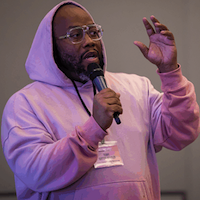Arguably the biggest purchase impacting our space last year occurred in June when AOL announced its intent to purchase Advertising.com for north of $400 million. Two months prior, in March, another substantial acquisition took place. This one saw Ask Jeeves acquiring Interactive Search Holdings, more commonly known in our space under the iWon brand. While this year has seen activity from the capital markets and smaller acquisitions, no mega-acquisition has yet to occur. That all changed earlier this week when IAC/InterActiveCorp announced that it intends to purchase AskJeeves.com for close to $2 billion.
The Ask Jeeves acquisition of iWon in March 2004 was certainly substantial but seemingly quite judicious. Ask acquired not only a company that earned more revenues annually but also several synergistic assets. One such asset was iWon’s desktop software division that produces the popular FunWebProducts applications including cursors, email / IM icons, and screensavers. With that alone, Ask effectively doubled their search market share. Another asset acquired was their third-party ad network and media buying group, Max Online, formerly a part of internet icon DoubleClick. This provided Ask with a new potential advertiser base along with additional reach for their current advertisers. Two other assets formerly owned by iWon include the iWon web property and Excite.com. The former not only has a profitable user base but a strong and sophisticated lead generation component. With both, Ask increased the number of searches they process as well as owning more true content and ad space.
Ask’s extensive search and media reach will soon belong to an e-commerce giant run by Barry Diller, and what an impressive collection of companies that Ask will soon join. IAC owns among its holdings Home Shopping Network, CitySearch, RealEstate.com, Gifts.com, Hotels.com, Hotwire.com, Expedia.com, TicketMaster.com, LendingTree, and Match.com. The company earned more than $6 billion dollars in revenue for the full year of 2004. What this conglomerate will do with Ask is unclear. Many of IAC’s purchases operate in almost opposite sectors without much potential for overlap. It could be asked; What do the Home Shopping Network and TicketMaster have in common? What is certainly true is that several of IAC’s brands are among the net’s biggest advertisers and certainly big spenders on Ask.
Ask operates in one of the most competitive spaces, more competitive some might say than the incentive promotion market. While a part of IAC, Ask will continue to operate as a stand-alone unit. But, as part of such a competitive industry, will that arrangement as well as being a part of IAC be the best bet for Ask’s success? The opportunity is certainly there. Were Ask to become integrated among all of IAC’s properties, that could provide a boost in market share not otherwise attainable. Additionally, while incredibly profitable, Ask earns a majority of revenues from its relationship with Google. With IAC in the picture, Ask could reduce its dependency on Google, potentially altogether. As the Wall Street Journal mentions, independent search companies with a decent market share and price in the single-digit billions are a rare commodity, especially ones that have their own search-engine technology – something Ask has with Teoma.
In our space, we often forget that other non-pure internet companies might have an interest in the space. For those of us that have survived the dot-com boom and bust and spent the past four years earning money on a performance basis, the attention almost seems unwanted and incomprehensible. Most might prefer the status quo of being able to operate without much attention and intervention. That such large companies would choose to enter only validates the work and the space. Their entry will most likely result in those in the space realigning how they operate to accommodate for the entry of these outside giants. Many of those today represent the survivors who eschewed thoughts of going public and creating the next big thing in favor of staying in business. Now, however, that the internet has advanced beyond proof of concept, it looks like the attitudes might have to shift to cooperation now that survival is no longer the major concern. This is probably true too for IAC as it looks to prove it can do more than buy successful companies.



